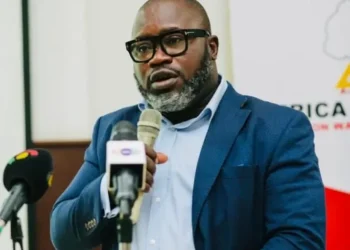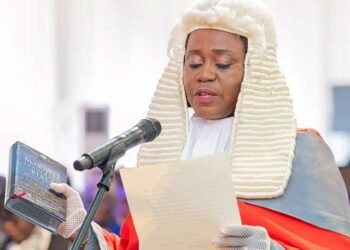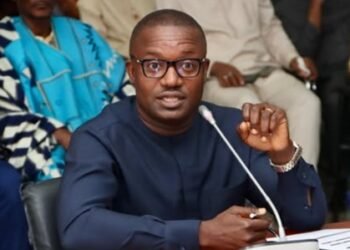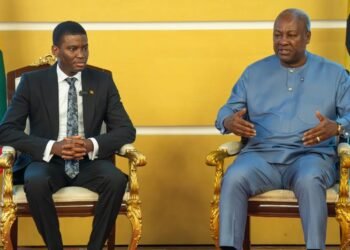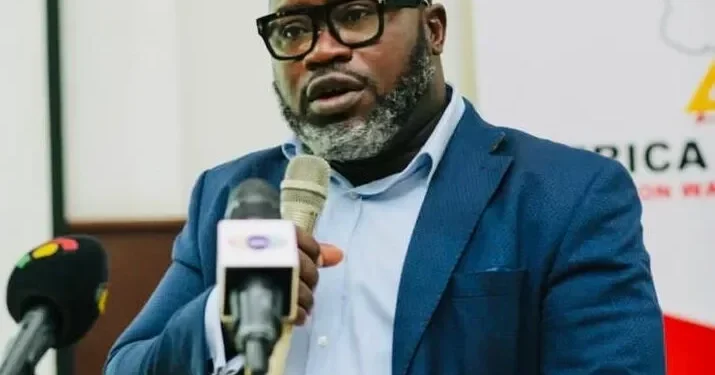The Supreme Court of Ghana recently ruled that the Speaker’s declaration of four parliamentary seats as vacant was unconstitutional.
This ruling has sparked discussions among legal and political circles regarding its implications for parliament’s next steps.
Hon. Rockson-Nelson Etse Kwami Dafeamekpor, Member of Parliament for South Dayi, has disagreed with the ruling and its potential consequences for parliamentary actions.
His response highlighted the procedural implications for parliament and questioned the basis of the Supreme Court’s decision.
Although the court’s ruling did not explicitly direct parliament to reconvene, having observed, others argued that the NPP might push for another emergency session to address the ruling.
“Unless I see the reason. I don’t know what the court is saying… In any case, a decision has to be taken by parliament to give effect to this ruling. And that decision will have to be taken by the 275 members of parliament.”
Rockson-Nelson Etse Kwami Dafeamekpor Member of Parliament for South Dayi
This statement emphasized the role of the entire parliament in responding to the court’s ruling, suggesting that a collective decision will be necessary to formalize the ruling’s impact.
Criticism of the Supreme Court’s Reasoning

Hon. Dafeamekpor expressed concerns about the basis of the Supreme Court’s ruling, questioning the evidence used to support the decision.
He highlighted the court’s apparent failure to clarify certain points, such as the specific roles and affiliations of the individuals involved in the dispute.
“First of all, I am sad by the decision of the court, I think the court fell into an error of some sort, Is the court saying that Cynthia Morrison is not running as an independent candidate in Agona West, even though she’s presently the NPP’s sponsored member of parliament for Agona West?”
Rockson-Nelson Etse Kwami Dafeamekpor Member of Parliament for South Dayi
Here, Dafeamekpor questioned whether the court had sufficient grounds to challenge the Speaker’s initial declaration, hinting that the decision may have overlooked critical details regarding party affiliations and candidate statuses.
Challenges in Interpreting the Court’s Decision
He implied that the court’s decision was open to interpretation and that parliament must determine how to implement the ruling effectively.
This ambiguity, he suggested, creates challenges for parliament in determining the appropriate course of action.
“When the Supreme Court decides, parliament must take steps to give effect to it. Is that not the case?” he asked rhetorically, adding, “Parliament is not an individual.”
On the Role of Parliament in Responding to the Ruling
The perspective reinforced the notion that the judiciary and legislature have distinct roles and that the enforcement of judicial decisions within parliamentary processes requires legislative approval.
This reinforced his earlier claim that parliament’s response to the Supreme Court’s ruling should be collective and procedural rather than unilateral.
Uncertainty About Evidence in the Court’s Ruling
One of Hon. Dafeamekpor’s primary criticisms concerned the evidence—or lack thereof—that supported the Supreme Court’s decision.
He questioned whether the court had sufficiently substantiated its ruling, specifically regarding the political affiliations and candidacies of the individuals involved.
According to him, the absence of clear evidence may have led the court to an erroneous conclusion.
“Is there evidence before the court that the independent member of Fomena now is the only candidate by the NPP under their symbol and color for Fomena?”
Rockson-Nelson Etse Kwami Dafeamekpor Member of Parliament for South Dayi
This question suggested that Hon. Dafeamekpor believes the court may have lacked the necessary evidence to make a fully informed decision, which could impact the legitimacy and acceptance of its ruling.
Hon. Rockson-Nelson Etse Kwami Dafeamekpor’s response to the Supreme Court’s ruling emphasized the complexities of enforcing judicial decisions within Ghana’s parliamentary framework.
His commentary illustrates the tension between Ghana’s legislative and judicial branches and underscores the importance of clarity and evidence in court decisions affecting parliamentary actions.
READ ALSO; Shatta Wale Previews New Song With Maali





